Will the 'populist wave' reach France?
- Published
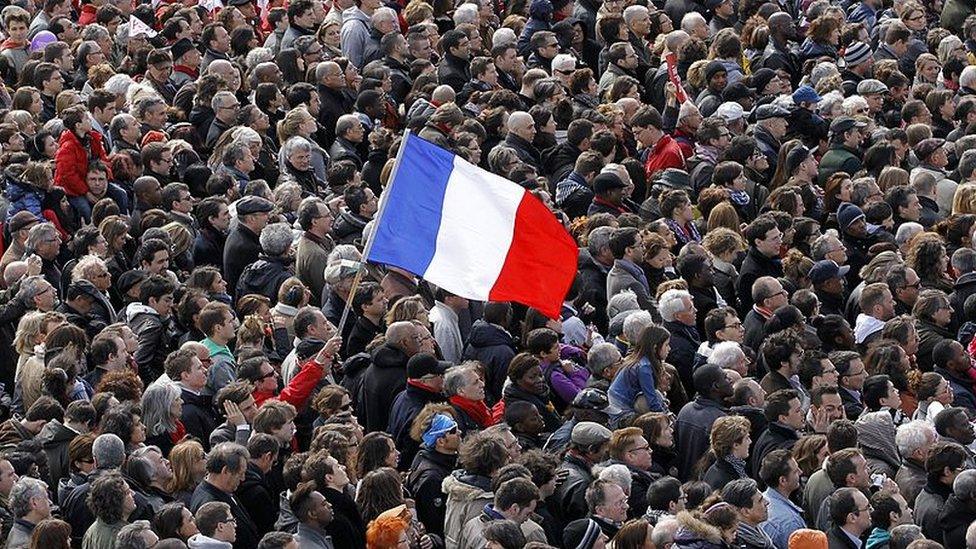
France's presidential elections next April and May are being carefully watched for signs of a "populist wave" reaching the home of the Enlightenment. After the surprise result of Britain's Brexit referendum and the election of Donald Trump in the US, what are the roots and the limits of populism in France?
In 1956, the far-right politician Jean-Marie Le Pen won a seat in France's National Assembly. Not under the banner of the Front National - the party he would later launch - but as a young MP for an earlier populist movement, the Poujadists.
The Poujadists described themselves as defenders of "the little people; the beaten-down; the robbed, the humiliated". Small, local and anti-establishment, they surprised everyone by winning 52 seats in the country's parliament.
Within a few years, they'd withered away into political obscurity. And when the far-right Front National appeared two decades later, says Jean-Yves Camus, an expert in far-right politics, many people expected it to follow the same fate.
"Back then," he told me, "most of my colleagues said 'this is just a temporary phenomenon, like we had in the 1950s - in a few years, the party won't exist'."
Instead, the Front National - with its modern-day mantra of defending "France's forgotten ones" - is now one of Europe's most successful populist parties, winning 28% of the popular vote in last year's regional elections. The question for all France's politicians, as the country approaches presidential elections next year, is why populism has become so popular.
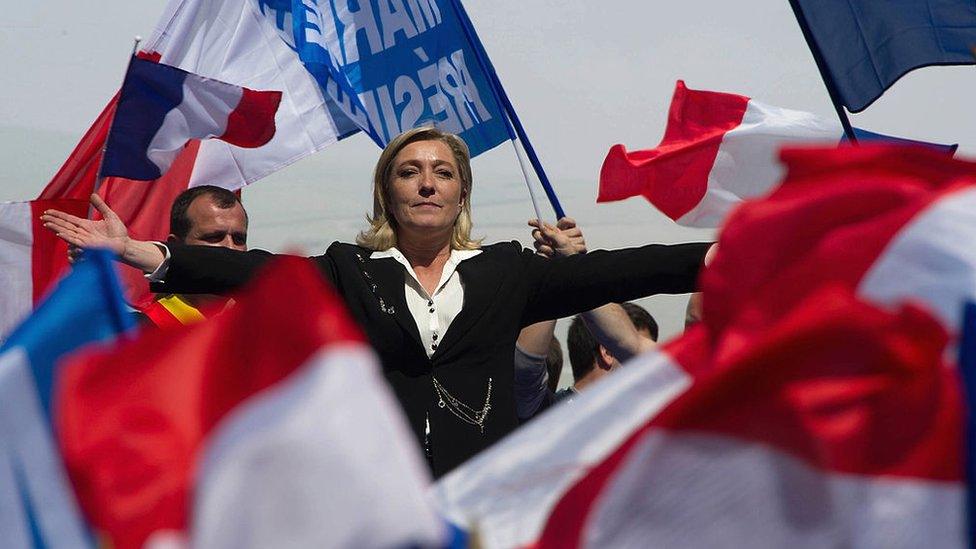
Marine Le Pen is campaigning for the presidency on a policy of "France for the French"
"There's been a rise in France of the populist vote," says Olivier Costa, an expert in European politics from the National Centre of Scientific Research, "and it's based on a fear of decline - economic decline, social, cultural. The world is changing fast and people feel anxious. They think the traditional parties can't fix it, and that it's worth trying something new."
"It's immigration, always immigration," says the pollster Jerome Fourquet, who runs the Ifop agency here, "when we ask voters, that's their main motivation [for voting FN]."
"Thirty years ago," he explained, "the slogan of the FN was 'one million immigrants - one million unemployed.' That's an economic argument. Today's it's 'France for the French' ('On est chez nous'), which means it's the French who [should] decide whether women can wear the veil, whether you can serve pork in school meals, if France stays French."
This argument over who is - and is not - French has played strongly into Marine Le Pen's anti-globalisation message, boosting support for her proposals to end immigration and pull France out of the EU.
What's striking is that France has not experienced the recent immigration levels of Germany, Hungary, Austria or Scandinavia. But it does have existing sensitivities over how to incorporate different cultures into French society, particularly those from its former colonies in North Africa.
"We have this funny concept of laicite," says Jean-Yves Camus from the French Institute for International and Strategic Affairs, "which is not really secularism. What it means is that when you come from abroad, or at least from a non-European country, you need to assimilate to the extent that you forget about your roots.
"In the US, if you want to say 'I'm Italian-American', or 'I'm Chinese-American,' you can. In France, you can't."
That concept of laicite has been something to latch onto, for those fearful about rapid global change. It's also provided the backdrop for a campaign by the party's current leader Marine Le Pen to draw in new groups of voters, in the aftermath of terrorist attacks by self-proclaimed Islamists.
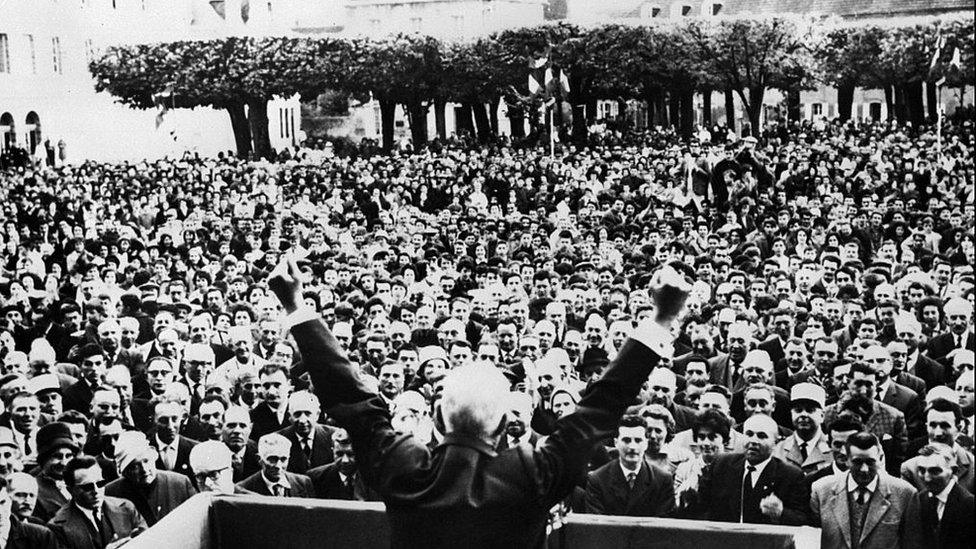
Charles de Gaulle was the most famous populist politician to become President of France
The Front National now has strong support among the under-25s and gay couples, and is making efforts to attract women and Jewish voters, urging them all to come together against what it calls the "threat" of Islam in France.
In a sometimes febrile debate, politicians from the mainstream parties have also toughened their rhetoric on immigration, and the role of Islam in France. But how much of the FN's appeal is based on its policies, and how much on its populist promise of revamping what it calls France's "broken" political system?
When it comes to the populist message, says Olivier Costa, "France is very polarised, as are Britain and the US; there's a limit to how much of the electorate the FN will be able to win over."
Oddly, that's both a strength and a weakness for the party.
It's certainly true that France's two-round voting system has made it difficult for the party to translate votes into power. Few of those who vote against the FN in the first round are prepared to switch their support to it in the second.
But its polarising effect is striking in a country where many people say that politicians "are all the same" and that there's no point voting at all.
Both mainstream parties here - the Socialists and the Republicans - have inched towards the centre in recent years, which has left parts of France's electorate without a natural political home. Many others feel that the old political debate between Left and Right is tired and predictable.
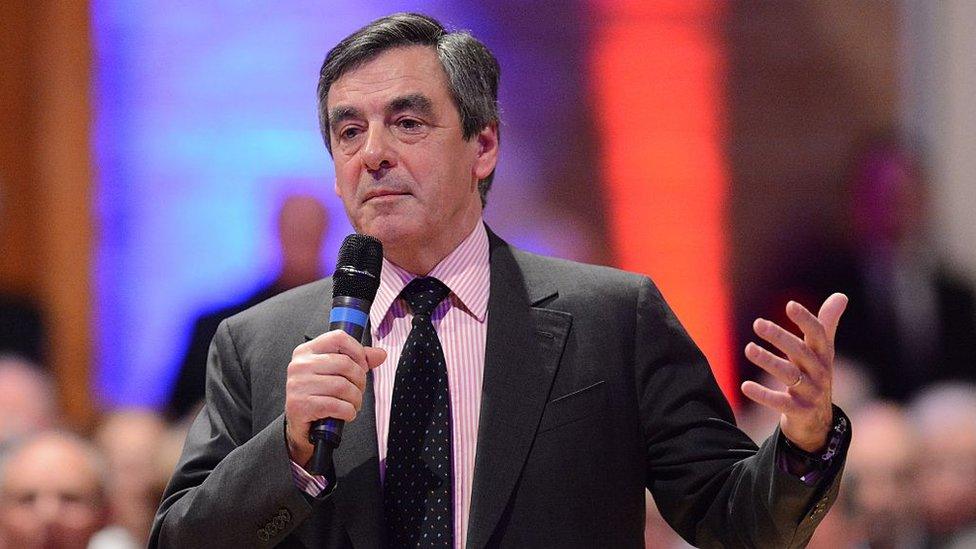
Francois Fillon, the candidate of the centre-right, has been seen to be wooing the Catholic vote
And what's interesting about the centre-right primary race here last month is that it wasn't the centrist who won.
Francois Fillon's campaign focused heavily on social issues, immigration and French identity, alongside hard-line proposals to reform France's economy. He won a resounding 66% of the primary run-off against Alain Juppe, who offered voters a more moderate, liberal and inclusive agenda.
"Fillon's playing on the Catholic vote is new in France today," says Olivier Costa. "No politician has talked about religion here for a long time. You have to go back to de Gaulle or Pompidou to see social conservatism like this in a major party. It's a smart move by Fillon - he saw there was an electorate to be wooed there."
The Socialist Party, which holds its primary contest in January, is split between the traditional left and reformers like former Prime Minister Manuel Valls, who supports extending the ban on the Muslim headscarf, and liberalising France's economy.
The question is who voters will choose, and whether a red-blooded ideological battle between the two main parties will re-energise politics here, and lessen populism's appeal.
Jean-Yves Camus believes it will take more than that.
"We really need to have fresh faces in parliament and government," he says. "The overwhelming majority come from the civil service, because it's easier than if you're a lawyer or have your own business.
"We need to bring more people from civil society into politics, people who do not want to stay on for decades. We've had people standing for parliament - and sitting in parliament - for 40 years."
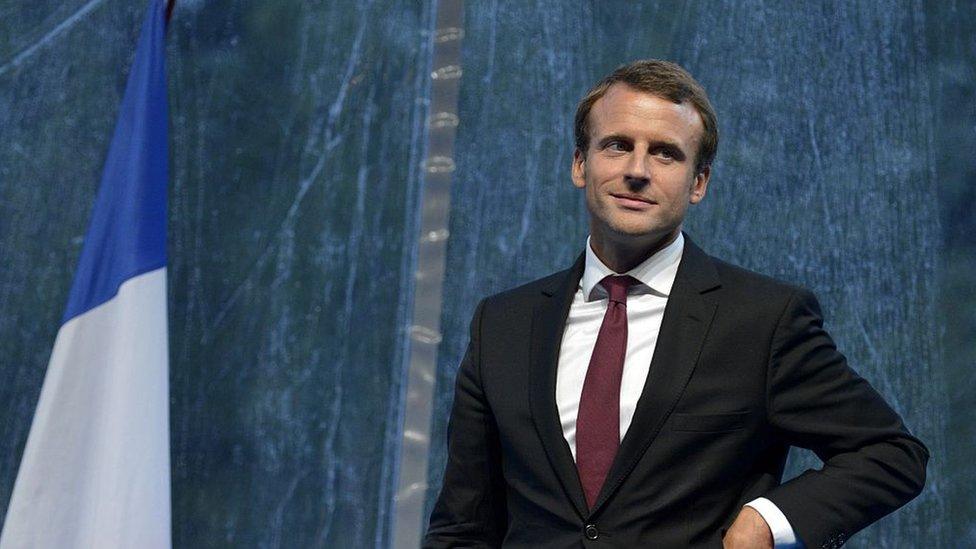
Emmanuel Macron, an independent presidential candidate, speaks of "the emptiness" of France's political system
There's always been a divide between the political class and the "real people", says Olivier Costa, but France's leaders don't seem to understand that it could reach a tipping point.
"Everyone says about the primaries 'What a great success, what a wonderful exercise in democracy', but it's a joke," he says. "Fillon has won [a cumulative total of] 107 years of electoral mandates. There's no one new. Even Marine Le Pen has been elected for 20 years."
The Front National isn't the only party with an anti-establishment message in this election. The 38-year-old former economy minister, Emmanuel Macron, left the Socialist government earlier this year to run as an independent candidate "from neither the Left nor the Right". Having never been elected to office, he presented himself as a fresh face, not part of the political establishment.
"I've seen from the inside the emptiness of our system," he said when announcing his candidacy. "[It] stops ideas because they weaken the system - political parties and vested interests that no longer work for the people but for themselves."
"Populism is a style, not an ideology," explains Jean-Yves Camus. "It can go along with any kind of ideology, whether it is left wing, or on the right, or even mainstream."
The presidential election taking place in a few months' time is being seen as a test - not just for what politician France chooses - but what kind of politics.
- Published22 December 2016
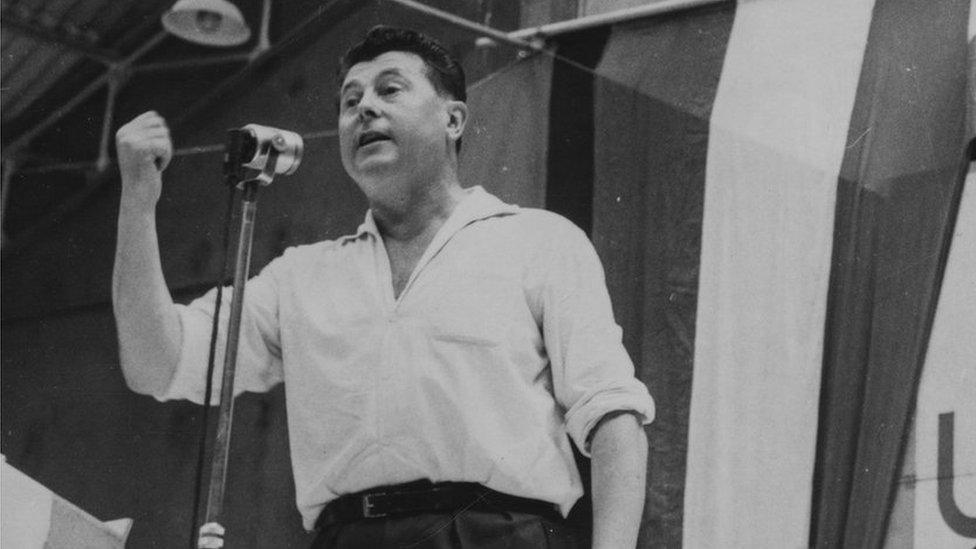
- Published28 March 2017
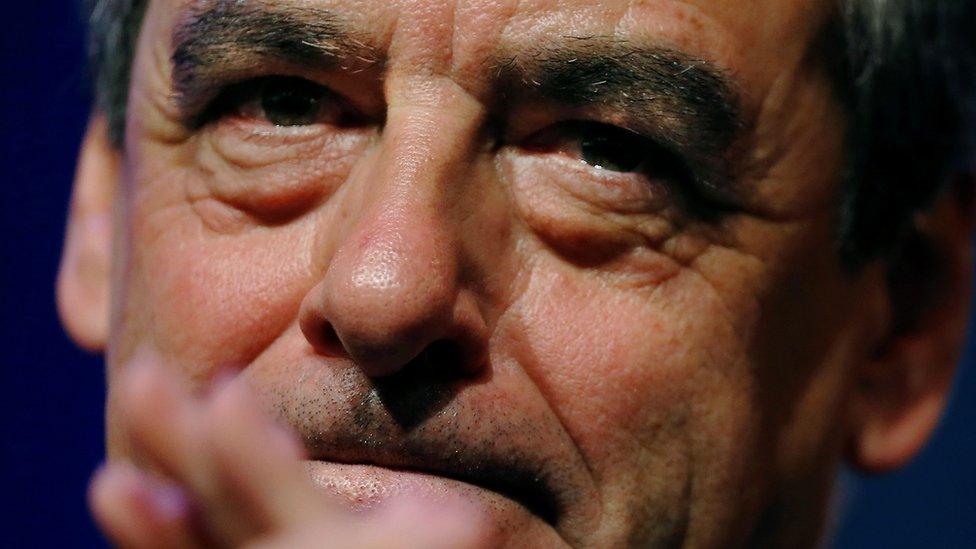
- Published7 May 2017
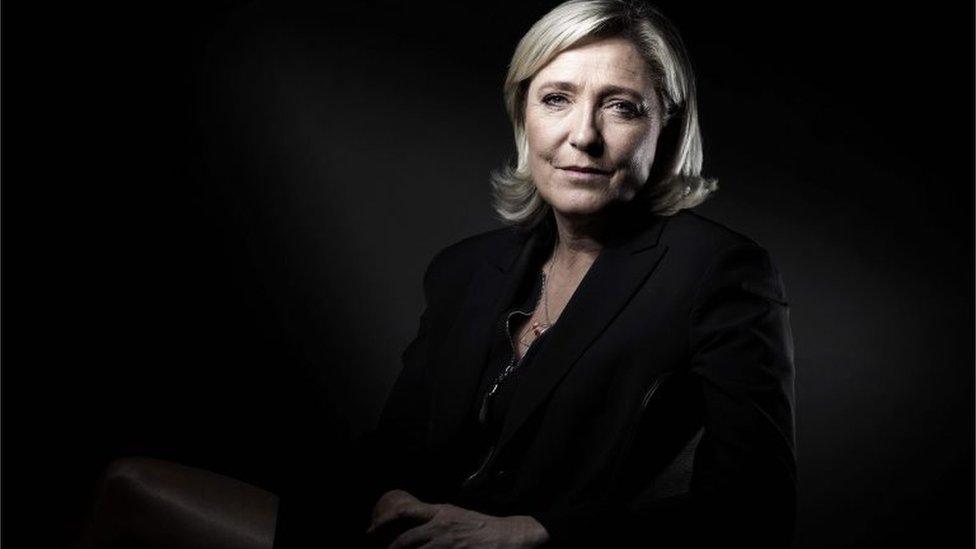
- Published11 May 2021
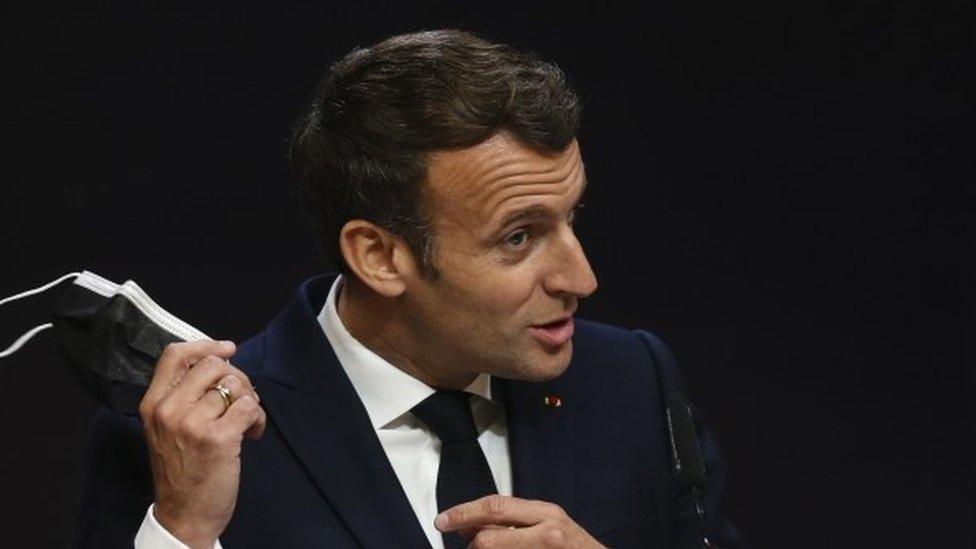
- Published11 February 2016
